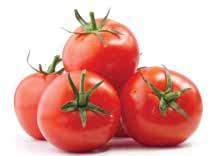YOUR INDUSTRY
WHILE 2021 FEELS VERY MUCH LIKE 2020, NOW IS THE TIME TO BE BOLD Words by Ian Proudfoot : KPMG
In the December 2020 edition of this magazine, I explored the question ‘Is it going to be OK’ as we waved 2020 goodbye and looked forward to 2021. I suggested for those that are prepared to be bold and see the world in front of them as it is today, the answer was undoubtedly yes. Sitting in Auckland, locked down at home again as I write, balancing work and home schooling and wondering why I didn’t buy some extra flour at the weekend, it does not feel like 2021 is very different to last year. While I recognise that the immediate disruption of another lockdown will not last forever, the consequences of what we are living through will have fundamental and far-reaching impacts on all aspects of our lives. We know this is the case; our lifestyles are shaped by practices and institutions that arose from the Second World War, or more recently, the September 11th attacks and the Global Financial Crisis. At a guess the Covid-19 pandemic will materiality shift how public health is managed moving forward at both a country and a global level, as well as focusing people more closely on their own personal health outcomes. I also expect it will reshape how our global supply chains work given that the system has been stretched to the limit, and in some cases failed, for much of the last year.
In respect of health implications of the pandemic, I see a wealth of opportunity for New Zealand and particularly the horticulture sector In respect of health implications of the pandemic, I see a wealth of opportunity for New Zealand and particularly the horticulture sector. The sector grows products that are widely recognised as being integral to a healthy diet and maintenance of a strong immune system. Greater focus
26
NZGROWER : MARCH 2021
on public health is likely to result in more demand for fruit and vegetables as governments look to address the root causes of poor health outcomes in their communities and consequently spotlight the role that diet plays. Global recognition of the strong health outcomes that New Zealand has achieved during the pandemic provides a platform for us to boldly leverage when talking to customers and consumers around the world about the attributes inherent within our produce.
Global recognition of the strong health outcomes that New Zealand has achieved during the pandemic provides a platform for us to boldly leverage when talking to customers and consumers around the world The picture for global supply chains is less positive. The country woke up to the supply chain challenges industry has faced for the last year when it became apparent that many Christmas presents would not be under the tree on Christmas Day. The media narrative at the time placed the blame largely on delays at Ports of Auckland, which to me was unfair as our understanding is this is just one pain point in a global supply chain which is being disrupted by a lack of equipment, increased operating costs and delays at both ports of departure and arrival due to Covid related protocols and testing. The problems we now see clearly with our supply chains have been building for years. The cost of operating a trade route to New Zealand is high, through both an economic and environmental lens, and we, in the main, are not a major market for global freight companies. Faced with significant challenges across their global businesses many may find it easier and economically viable to drop their New Zealand routes and focus on fixing the issues on the major trades between Asia, the US and Europe, which will have a more immediate and significant impact on the profitability of their businesses.



























